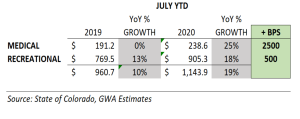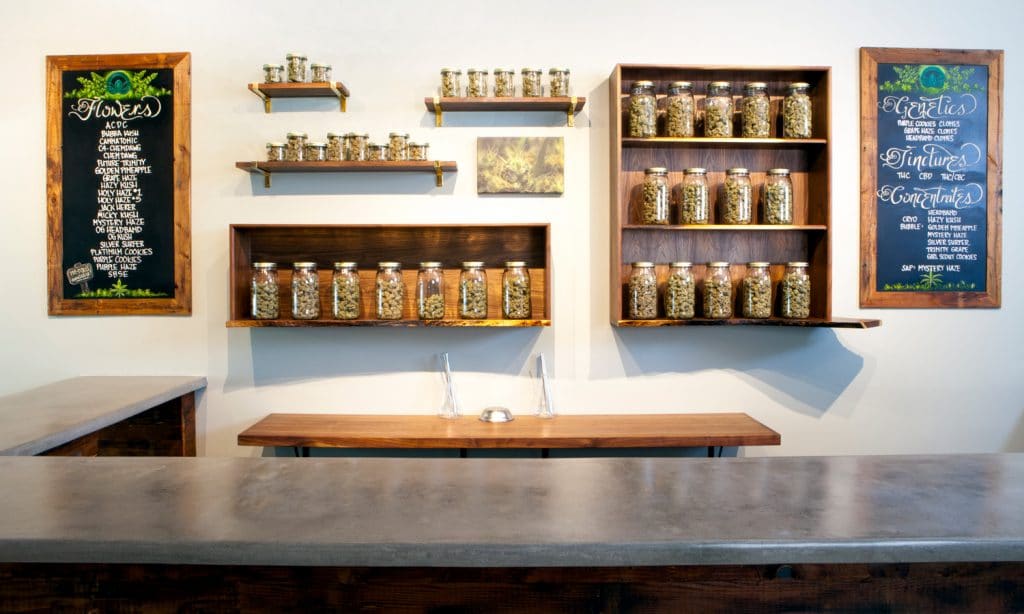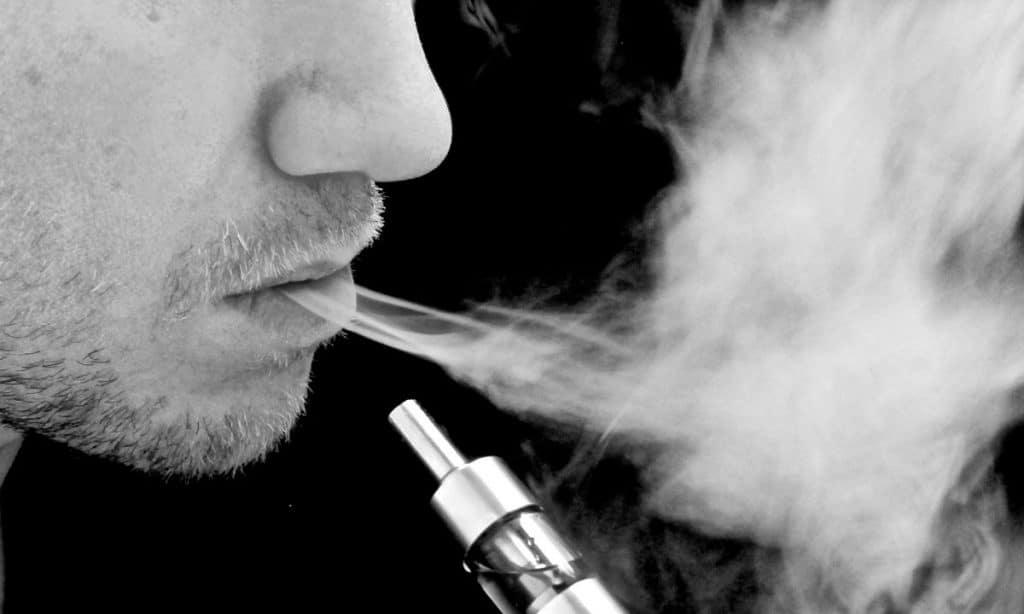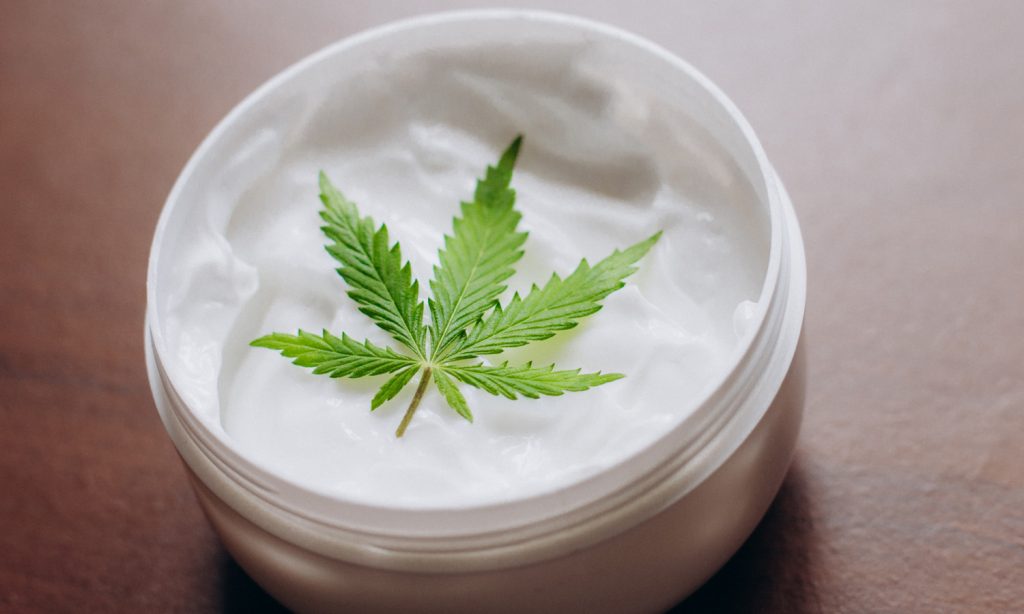Read entire article on Benzinga
The state of Colorado released its marijuana tax revenues for July which implies total monthly sales of $206.7M (+ 7% MoM; 20% YoY) with medical marijuana revenues at $42.4M (+4% MoM; 42% YoY) and recreational use ~$164.2M (+8% MoM; 16%YoY). We estimate that the average cardholder spend in the month ticked up to ~$510 from ~$490 in June ($338 July ’19). The number of cardholders at month end remained flat from June at ~83K but up from ~80K since the pandemic hit. (NOTE: Not every registered cardholder will make purchases in any given month, in fact some states have revealed active patients at ~70-75% thus the estimated average cardholder spend per month could be understated given that the denominator in our calculation is likely lower.)
Since the COVID-19 pandemic took its hit on the economy, The US Cannabis industry has proven remarkably resilient with a surprising resurgence in Colorado, from what had been considered a mature market (6+ years since recreational use was introduced).
Earlier this year, we suggested that as the economy worsens and disposable income levels fall, some cannabis consumers would switch to the illicit market because it provides a cheaper alternative (no sales tax and other costs associated with regulation). Additionally, we asserted that, a recreational use consumer could reduce monthly spending by obtaining a medical card that enables the purchase of similar cannabis products at a significantly lower sales tax rate (~20-25%+). In most states, a medical marijuana card can generally be obtained without much difficulty depending on the qualifying condition (i.e. chronic pain which is loosely defined).
Our analysis of Colorado’s recent sales trends could suggest that our prediction for these possible shifts in consumer behavior may have come to fruition based on the following:








